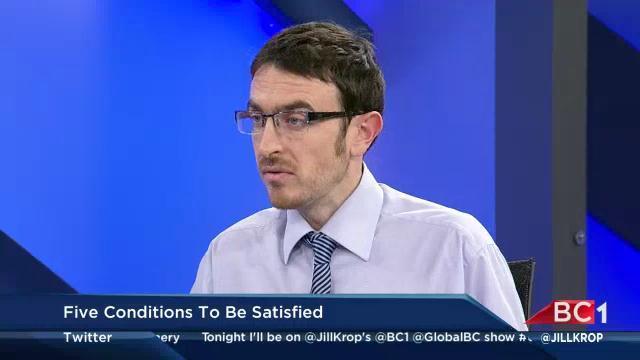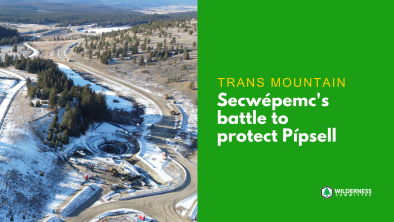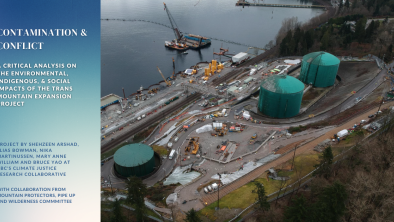Critics to Northern Gateway react to recent tentative pipeline deal
Global News BC

The tentative deal reached by B.C. and Alberta on the Northern Gateway pipeline came as a surprise to some.
For months, B.C. firmly opposed the project, saying it failed to address the province’s environmental concerns.
It became a contentious issue between the province’s premiers.
One environmental group against the pipeline says there was too much focus on the relationship between the premiers.
Eoin Madden from the Wilderness Committee spoke on the topic with Jill Krop on Unfiltered.
He claims the back and forth meetings between Clark and Redford were a “purposeful distraction. “
“A majority of British Columbian’s do not want bitumen pipelines in B.C. We can’t lose site of that and get dragged away to this dramatic unfolding of relationship on TV. To me it’s a purposeful distraction for everyone to bring us away from that massive opposition.”
When asked by Jill Krop if he believes this disagreement was staged, Madden responded “to me the media is being fed this drama that’s dragging us away from the real issues here. We’ve got massive opposition by First Nations , we’ve got a majority of British Columbians saying no to this proposal. We’re supposed to be climate leaders, yet we’re building all this fossil fuel infrastructure. They’re not the message that’s coming out on the media. What’s coming out is this dramatic…well a bit of a joke really…it’s a drama which distracts in my opinion”
NDP Environment critic Spencer Chandra Herbert, who also spoke on Unfiltered with Jill Krop, said the province flip-flopped on the issue.
He claimed the province is not prepared for a potential oil spill.
Instead of investing in a pipeline, Herbert wants the government to look into renewable energy and clean technology.
Supporters of the project point to the infusion of billions of dollars into the local economy.
But Herbert said local economies in B.C.’s north could be wiped out if a spill occurred.
He said “you could make money today sure by burning things and polluting the environment but if the cost tomorrow is way higher than today, why would we do that? Why would we leave a climate change disaster for our children and our grandchildren.”
The pipeline project has yet to be approved by the Federal government.


